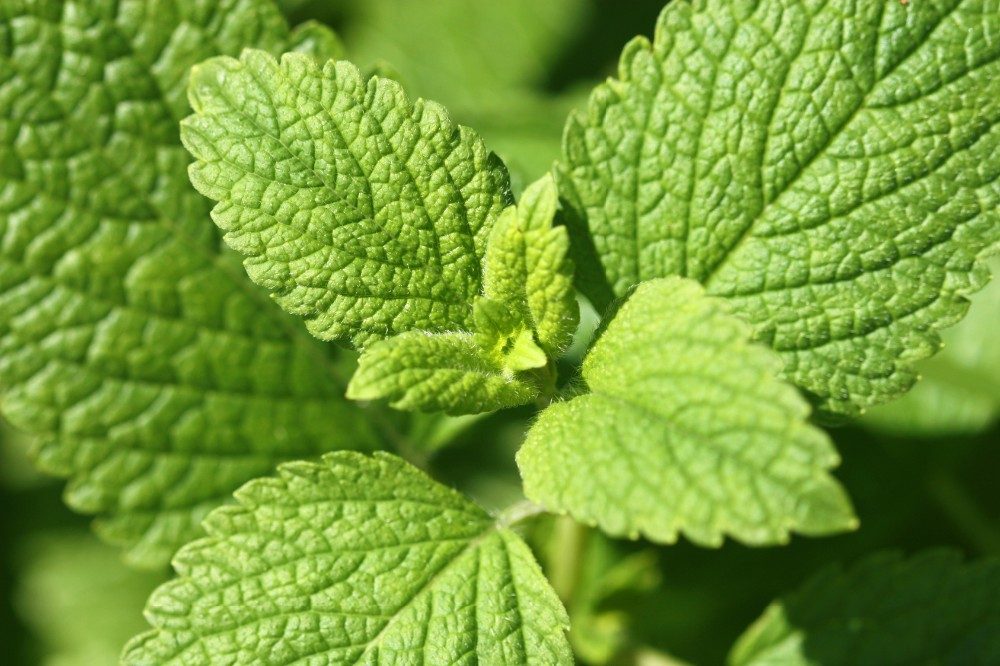
Lemon Balm is edible and medicinal. Fresh leaves can be added to salad or used in egg dishes and can be used to make sauces for fish, poultry and pork. Dried or fresh the whole plant is used to make cool refreshing drinks or warm relaxing teas. Used in alternative medicine the leaves and young flowering shoots are antibacterial, antispasmodic, antiviral, carminative, diaphoretic, digestive, emmenagogue, febrifuge, sedative, and tonic. Balm contains a volatile oil citral and citronella which is strongly antispasmodic and aids in calming nerves, relieving menstrual cramps, insomnia, depression, hyperthyroidism, upset stomach, and colic in babies. Leaf tea is good for fevers, colds, and headache. Fresh crushed leaves are applied to wounds and insect bites. The essential oils in the fresh plant, particularly citronella make it a most effective insect repellent when crushed and rubbed on skin or clothes. A herb good for cleaning the skin. it can help significantly in the treatment of cold sores and combat the herpes simplex virus. Added to bath it relieves muscle tension and soothes irritated skin. The oil is often added to skin preparations and perfumes. The essential oil is used in aromatherapy and is very pleasant used in potpourris.
Lemon balm, a member of the mint family, has been used for centuries to melt away tension, relax the body and soothe the mind. Often overlooked, it deserves to be considered as a part of any medicinal herb garden.
The great news is recent research has shown that adults taking lemon balm do indeed experience stress relief. They report improved moods as well as decreased anxiety and increased cognitive function. Lemon balm actually calms you down and helps you think more clearly!